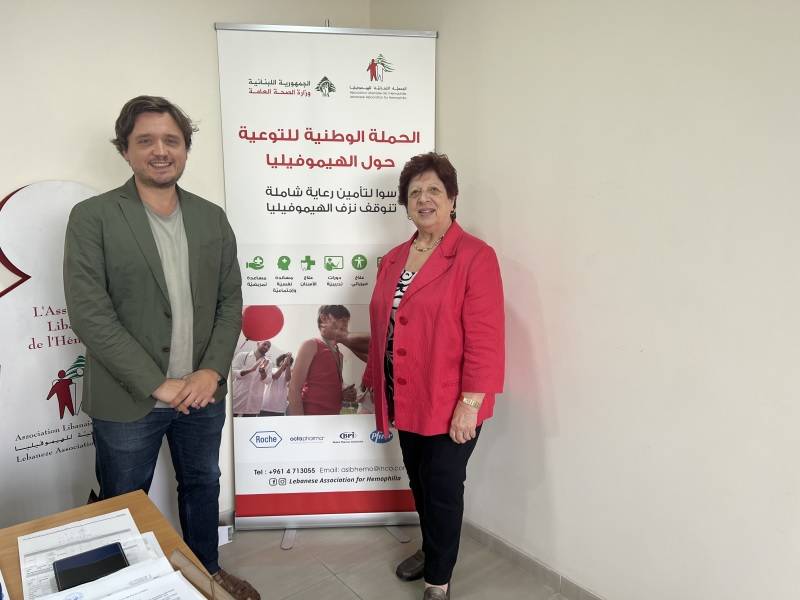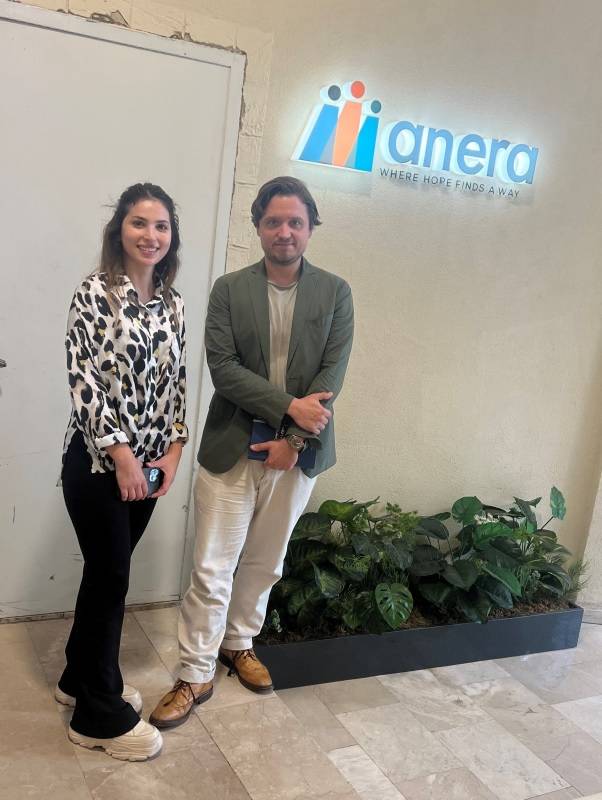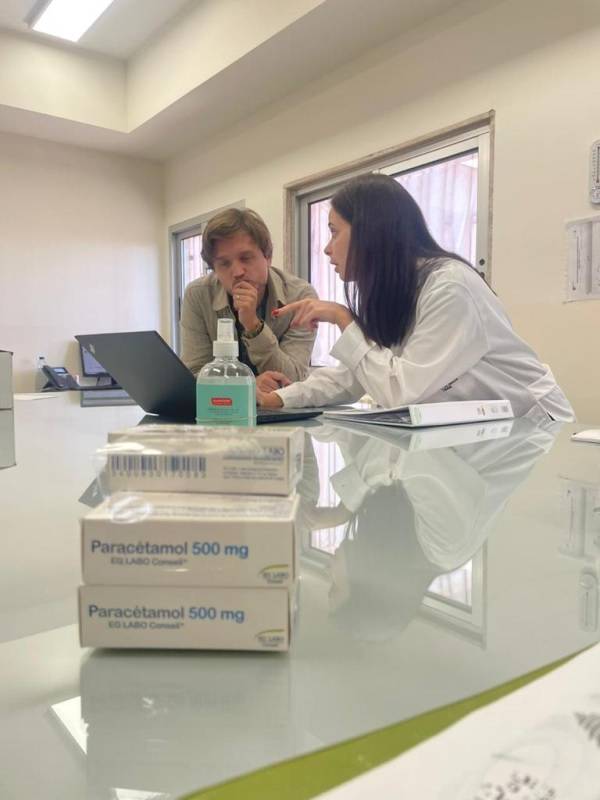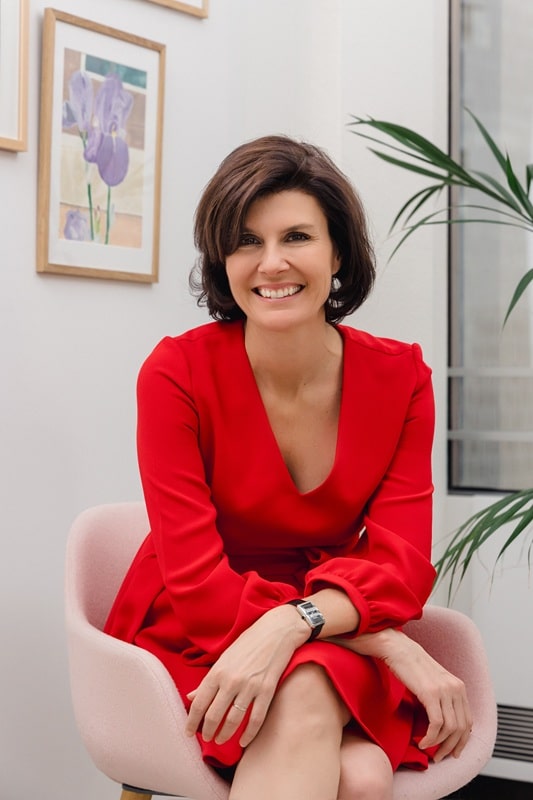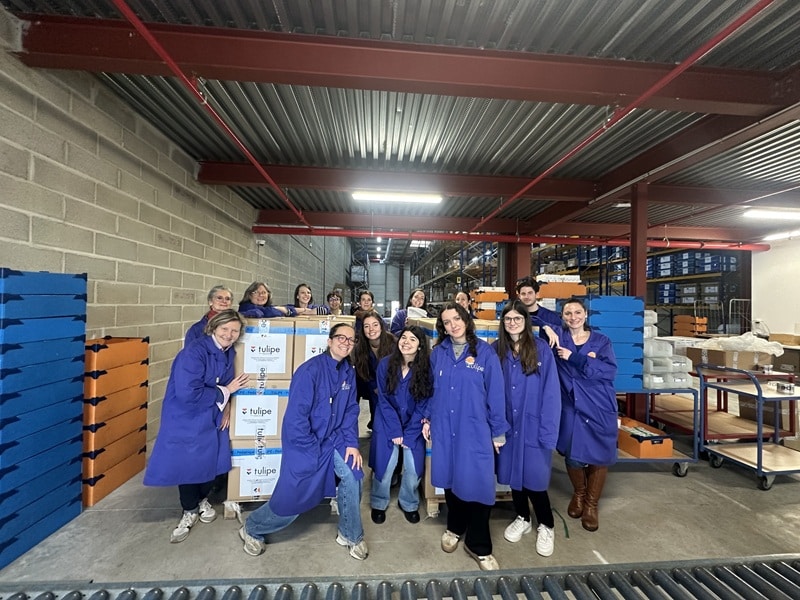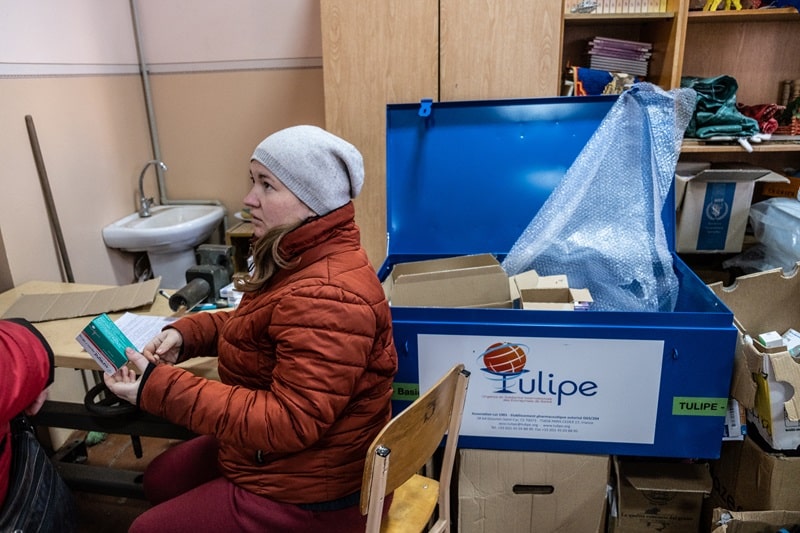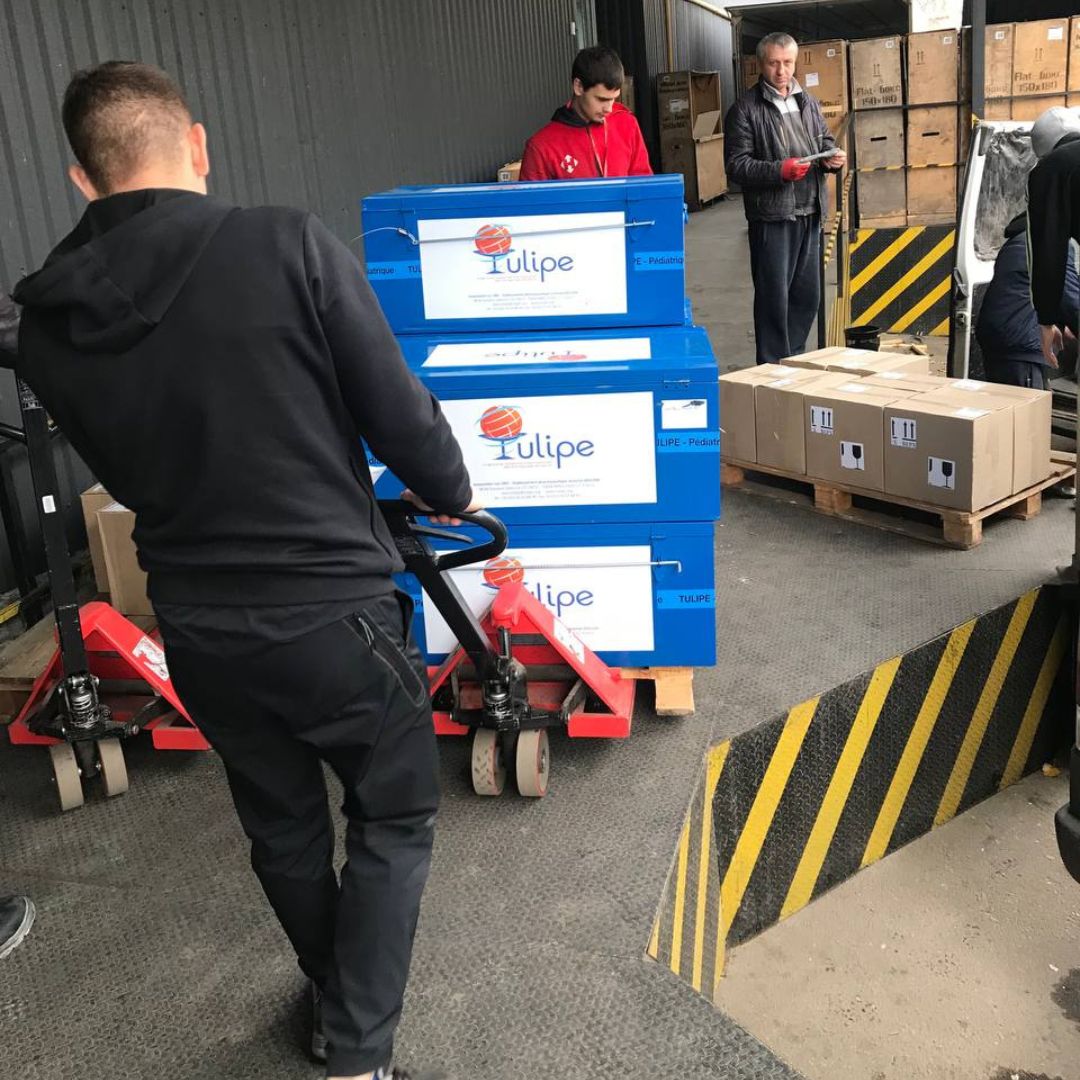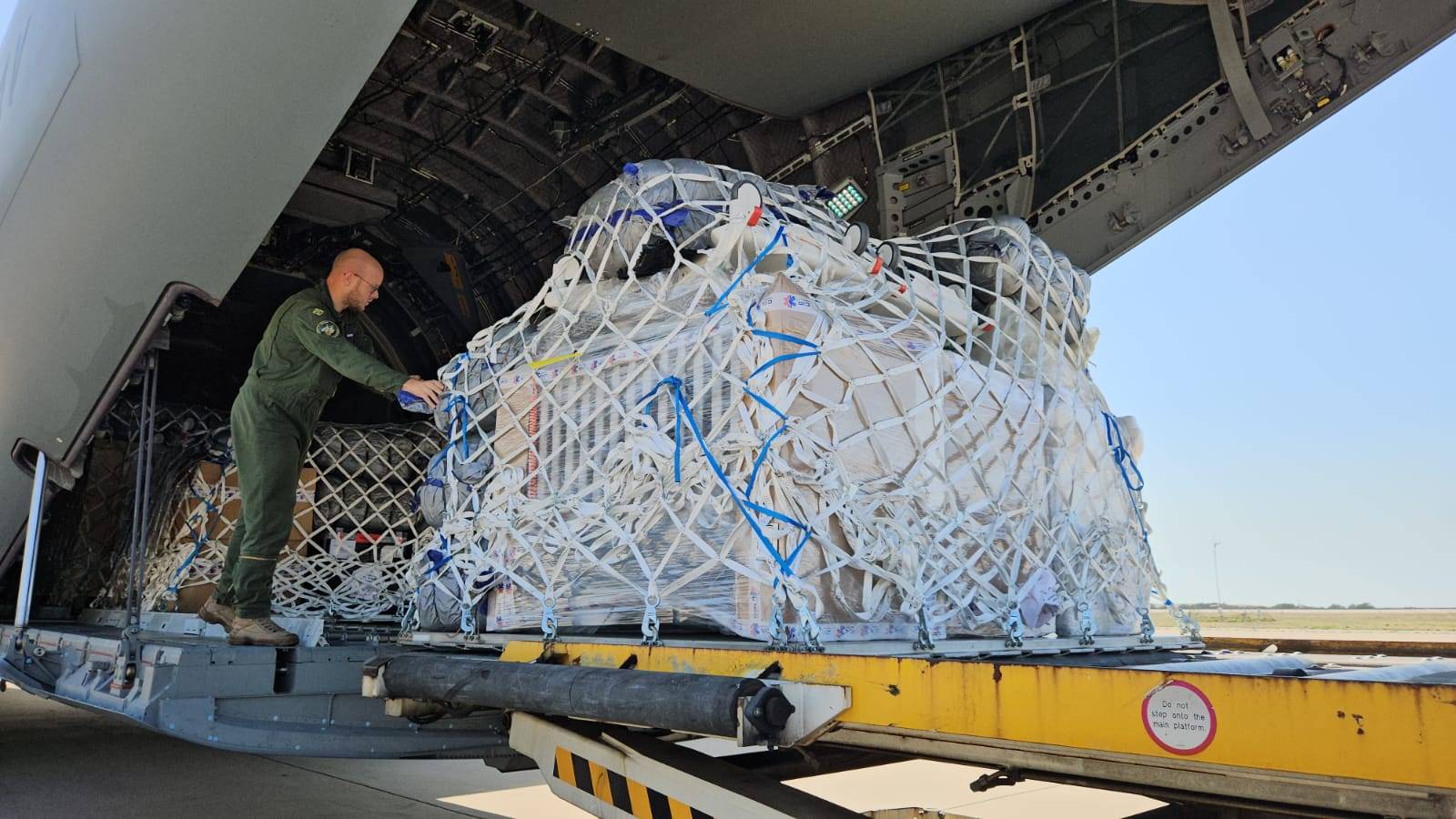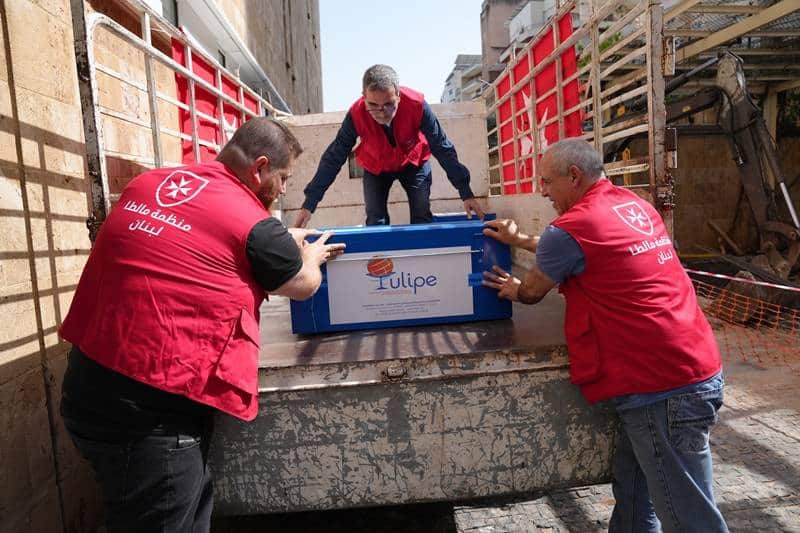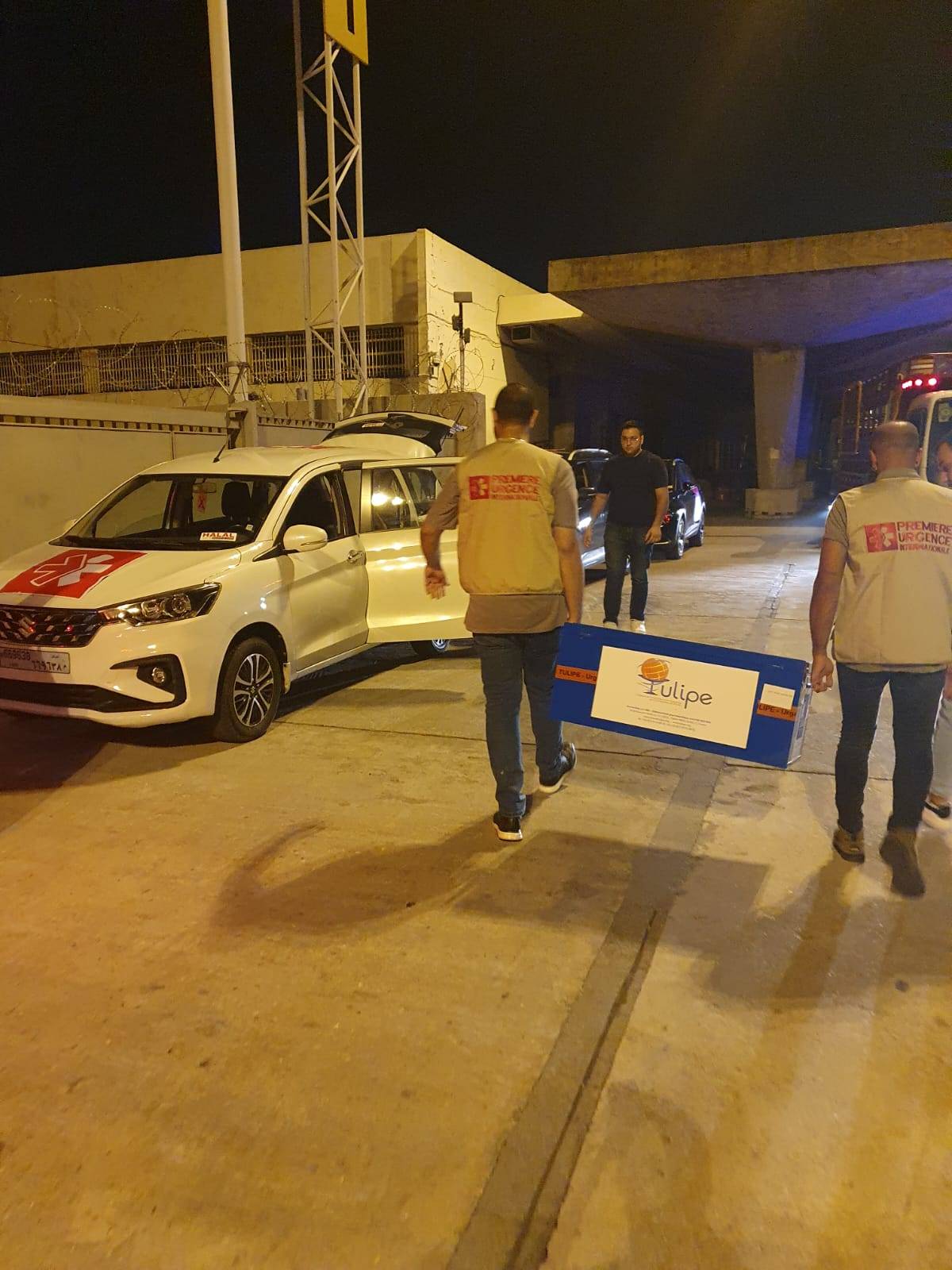Alexandre Laridan, Director of Operations for the Tulipe association (Transfert d’Urgence de l’Industrie Pharmaceutique), met with partner NGOs, other humanitarian actors and the country’s Minister of Health in Lebanon from 9 to 13 October. These on-site discussions enabled Tulipe to strengthen its support for organisations dedicated to providing access to healthcare for a population devastated by 4 years of unprecedented economic and social crisis.
Access to healthcare for these populations in Lebanon is more than ever a major issue in a context of conflict in this part of the world. The country is also home to millions of refugees, including two million Syrians and 750,000 Palestinians. On 9 October 2023, Alexandre Laridan, Director of Operations for the Tulipe association, began a series of field visits with representatives of the Ordre de Malte Liban in Lebanon. In the presence of Patrick Jabre, Director General of the Ordre de Malte Liban, he visited one of the care centres managed by the NGO and supplied in part by health products donated by Tulipe and its member health companies. It was at the time of the explosion in the port of Beirut, which killed 218 people and injured over 7,500 more than three years ago, that a partnership was formed between the Order of Malta in Lebanon and the Tulipe association. Since then, support from French health companies through Tulipe has been constant, with several tonnes of health products donated over the last three years.
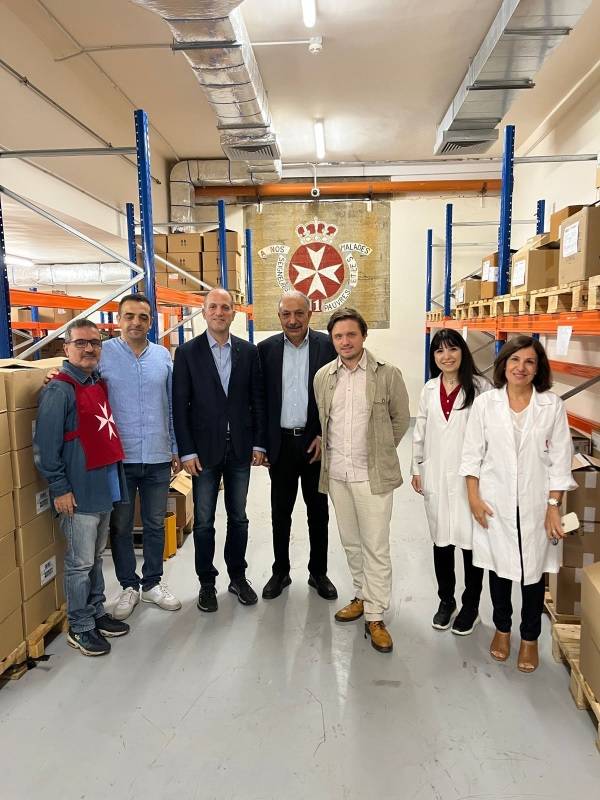
Alexandre Laridan, Director of Operations of the Tulipe association, with the Ordre de Malte Lebanon team on 9 October in Beirut.
Fighting haemophilia in Lebanon
Another major public health issue in the Land of the Cedars is the fight against haemophilia, a hereditary haemorrhagic disease. As a result of repeated drug shortages, Lebanese patients are no longer receiving their treatment. On 10 October, with a view to strengthening Tulipe’s support for the fight against haemophilia in Lebanon, a meeting was held in Beirut between the President of the Lebanese Haemophilia Association, Solange Sakr, and the Director of Operations of the Tulipe Association. “We have been supporting this association for a year, providing specific treatments for the 524 patients (adults and children) it currently cares for. Since the start of the economic crisis in 2019, medicines for haemophiliacs have no longer been distributed to patients. In 2023, the pressure on donations is such that only children will still be able to continue their treatment. Solange and her teams are doing everything they can to deal with the day-to-day emergencies that are common among haemophilia patients who do not receive regular treatment,” explains Alexandre Laridan.
Solange Sakr, President of the Lebanese Haemophilia Association, received Alexandre Laridan on 10 October.
Meeting with the American NGO Anera
On October 11, a meeting took place with Rima Kamal, pharmacist and Director of Operations for Anera(American Near East Refugee Aid). Since 1968, as the American NGO explains on its website, “Anera has been helping refugees and others affected by conflict in Palestine, Lebanon and Jordan to live with purpose and hope. The organisation, which has no political or religious affiliations, works on the ground with partners in Palestine (West Bank and Gaza), Lebanon and Jordan. It mobilises resources for immediate emergency aid and for long-term health, education and economic development. Its staff serve their communities, navigating the politics that stand in the way of progress to deliver aid where it is most needed. In Lebanon, the American NGO supports 70 health centres across the country, in coordination with the Ministry of Health. According to Anera, “more than half of the Lebanese population now goes to health centres dedicated to the most disadvantaged, compared with 20% before the crisis. These centres are constantly running out of medicines to cope with this increase in activity”. Anera, like Tulipe, is a member of the PQMD.
Rima Kamal, pharmacist and Director of Operations for Anera (American Near East Refugee Aid) with Alexandre Laridan on 11 October.
Visit to a care unit and meeting with the Lebanese Minister of Health
On 12 October, Tulipe was welcomed at the Barqa health centre, run by theOrdre de Malte Lebanon. The centre in this small village in northern Lebanon provides primary health care to the inhabitants of more than twenty isolated villages. Less than 25 kilometres from the Syrian border, the centre welcomes all the communities in the region, regardless of religion. Every month, the most vulnerable patients in the region are able to collect their treatment for chronic illnesses, so that they can benefit from the continuity that is vital to the effectiveness of their care. Receiving around one hundred patients every day, the Barqa care unit is one of 15 isolated health centres supported by Tulipe in Lebanon.
On 12 October, Tulipe was welcomed at the Barqa health centre, which is run by the Order of Malta in Lebanon.
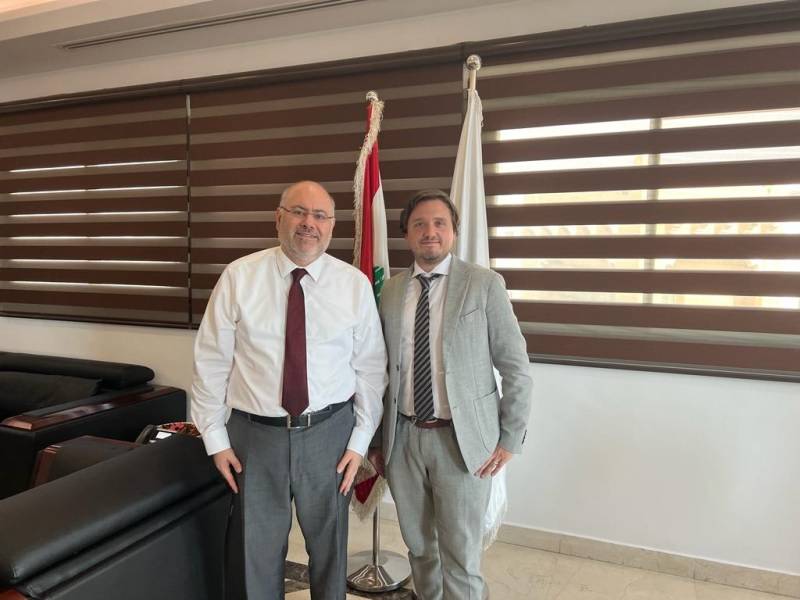
Interview in Beirut with Dr Firass Abiad, Minister of Health on 13 October 2023
On 13 October, the Tulipe representative’s mission to Lebanon concluded with a meeting in Beirut with Dr Firass Abiad, Minister of Health. All of Tulipe’s donations to humanitarian organisations in Lebanon are validated and coordinated with this ministry to ensure greater effectiveness. Discussions focused on optimising and strengthening collaboration between the Lebanese Ministry of Health and Tulipe over the coming months. Among the subjects discussed was the introduction of a tracking system for all medicines, including donations made by Tulipe, which will go through this process. This will enable the Ministry of Health to monitor stock levels and requirements in real time. The current crisis and the Ministry’s various strategies for restoring stability were also on the agenda.
Following the Hamas terrorist attacks in Israel, the Israeli response in Gaza and the clashes at the Lebanese border, the Lebanese Ministry of Health set up a crisis unit. This unit would be activated should the situation continue to deteriorate at the country’s southern border. In particular, Tulipe could provide assistance in managing the injured.
